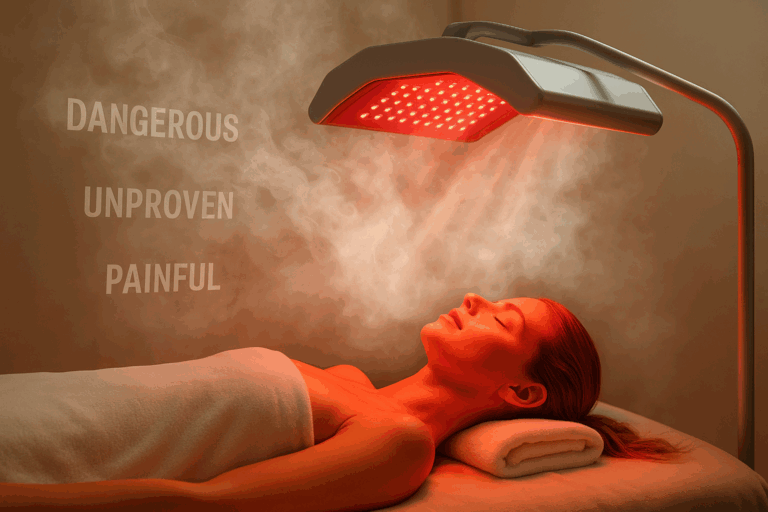Introduction: Unleashing the Power of a Ketogenic Diet
Embarking on a ketogenic diet can be a transformative journey towards achieving optimal health and wellness. By adopting a low-carbohydrate, high-fat eating plan, individuals can tap into the extraordinary benefits of ketosis, where the body utilizes fat as its primary fuel source instead of carbohydrates. However, with any dietary change, it’s crucial to consider the impact on the body’s electrolyte balance. In this comprehensive guide, we delve into the intricate world of electrolytes in a ketogenic diet, exploring their significance, addressing common concerns, and providing practical tips for maintaining optimal health.
Electrolytes in a Ketogenic Diet: A Balancing Act
Electrolytes in a Ketogenic Diet: A Key to Balance and Vitality
To understand the role of electrolytes in a ketogenic diet, we must first grasp their importance in our overall well-being. Electrolytes are minerals found in bodily fluids that carry an electrical charge, playing a crucial role in nerve function, muscle contraction, pH balance, and hydration. Common electrolytes include sodium, potassium, magnesium, calcium, and chloride. When transitioning into ketosis, the body’s insulin levels decrease, leading to enhanced fluid excretion and potential electrolyte imbalances.
>>> Check this article to know the science behind Keto
The Power Trio: Sodium, Potassium, and Magnesium
Maintaining Sodium Levels: The Sodium Conundrum
Sodium, often associated with bloating and hypertension, has received a bad rap over the years. However, in a ketogenic diet, sodium plays a critical role in maintaining hydration and optimal health. As carbohydrate intake decreases, insulin levels drop, causing the kidneys to excrete excess water and sodium. This diuretic effect can result in a rapid loss of electrolytes, leading to symptoms such as fatigue, dizziness, and muscle cramps. It is essential to monitor sodium levels and replenish them appropriately through dietary sources or supplementation.
Reaping the Benefits of Potassium: A Must-Have Mineral
Potassium, a mineral abundant in fruits and vegetables, tends to be insufficient in a typical ketogenic diet. This deficit can lead to imbalances, affecting nerve and muscle function. Incorporating potassium-rich foods like avocados, spinach, and mushrooms can help address this issue. Additionally, supplementation with potassium citrate may be considered under the guidance of a healthcare professional.
Magnesium: The Mighty Mineral
Magnesium is involved in over 300 enzymatic reactions in the body, making it a vital mineral for overall health. However, magnesium deficiency is prevalent, and it can be exacerbated by a ketogenic diet. Inadequate magnesium levels can lead to muscle cramps, sleep disturbances, and mood fluctuations. Nuts, seeds, dark chocolate, and leafy greens are excellent dietary sources of magnesium. Supplementation may also be beneficial, but it’s crucial to choose the appropriate form of magnesium, such as magnesium citrate or glycinate.
Calcium and Chloride: Often Overlooked
Calcium: Beyond Strong Bones
Calcium is renowned for its role in maintaining bone health, but its significance goes far beyond skeletal strength. Adequate calcium levels are necessary for muscle function, nerve transmission, and blood clotting. While dairy products are rich in calcium, individuals following a ketogenic diet might opt for alternative sources such as leafy greens, sardines, and almonds. Ensuring optimal calcium intake is vital for preserving bone density and overall health.
Chloride: A Silent Player
Chloride is often overlooked when discussing electrolytes, but it plays a crucial role in maintaining the body’s acid-base balance and aiding in digestion. This electrolyte is typically obtained through dietary sources such as salt, seaweed, and certain vegetables. It’s important to ensure an adequate intake of chloride to support overall electrolyte balance and optimize bodily functions.
Recognizing Electrolyte Shortage: Understanding the Symptoms
When electrolyte levels are imbalanced or depleted, the body can exhibit various symptoms that serve as warning signs. It’s essential to be aware of these indicators to address electrolyte shortage promptly. These signs can disrupt daily activities and impact overall well-being. Paying attention to your body and recognizing these symptoms can prompt you to take action and replenish electrolytes effectively through dietary adjustments or supplementation. If symptoms persist or worsen, it is crucial to seek medical advice for a comprehensive evaluation and appropriate management.

symptoms that can occur when there is an electrolyte shortage:
- Muscle cramps: Electrolytes, such as potassium and magnesium, play a crucial role in muscle contraction and relaxation. When there is an imbalance or shortage of electrolytes, it can lead to muscle cramps or spasms.
- Fatigue: Electrolytes are involved in energy production within the body. When levels are low, it can contribute to feelings of fatigue or low energy.
- Weakness: Inadequate electrolyte levels can result in muscle weakness, making it difficult to perform physical activities or tasks that require strength.
- Irregular heartbeat: Electrolytes, particularly potassium, and sodium, are essential for maintaining proper heart function. Imbalances or shortages can lead to irregular heart rhythms or palpitations.
- Dizziness: Electrolyte imbalances can cause dizziness or lightheadedness, which may be accompanied by feelings of imbalance or faintness.
- Headaches: Low electrolyte levels can contribute to headaches or migraines in some individuals.
- Nausea and vomiting: Imbalances in electrolytes can disrupt the normal functioning of the digestive system, leading to symptoms like nausea or vomiting.
- Confusion or mental fog: Electrolytes, especially sodium, play a role in nerve signaling and brain function. Insufficient levels can result in confusion, difficulty concentrating, or mental fog.
- Changes in blood pressure: Electrolyte imbalances, particularly with sodium and potassium, can affect blood pressure regulation, leading to higher or lower blood pressure.
It’s important to note that these symptoms can vary depending on the specific electrolyte that is imbalanced and the severity of the shortage. If you experience persistent or severe symptoms, it’s recommended to consult with a healthcare professional for proper evaluation and guidance.
Overcoming Challenges: Replenishing Electrolytes
Navigating the Electrolyte Challenge: Tips for Success
Maintaining proper electrolyte balance while following a ketogenic diet may require some additional attention and care. Here are a few tips to help you navigate the challenges and ensure optimal electrolyte levels:
- Consume Sodium-Rich Foods: Incorporate foods like sea salt, bone broth, olives, and pickles into your meals to replenish sodium levels naturally.
- Choose Potassium-Packed Foods: Avocado, spinach, mushrooms, and salmon are excellent sources of potassium that can help restore balance.
- Magnesium-Rich Options: Enjoy a handful of almonds, pumpkin seeds, or a square of dark chocolate to boost your magnesium intake.
- Consider Electrolyte Supplements: If needed, consult with a healthcare professional to determine appropriate electrolyte supplementation options tailored to your specific needs.
- Stay Hydrated: Drinking adequate amounts of water is essential to support electrolyte balance and overall health. Aim for at least eight glasses of water per day.
FAQs: Addressing Common Concerns
- Q: Can a ketogenic diet lead to electrolyte imbalances? A: Yes, a ketogenic diet can potentially disrupt electrolyte balance due to decreased insulin levels and enhanced fluid excretion. It’s important to monitor electrolyte levels and replenish them as needed.
- Q: What are the symptoms of electrolyte imbalances? A: Symptoms of electrolyte imbalances may include fatigue, dizziness, muscle cramps, irregular heartbeat, and weakness.
- Q: Are there specific foods that can help replenish electrolytes? A: Yes, foods like sea salt, avocados, leafy greens, nuts, and seeds are rich in essential electrolytes and can aid in replenishment.
- Q: Can electrolyte supplements be beneficial for individuals on a ketogenic diet? A: Yes, electrolyte supplements can be beneficial, especially when there is an increased need for replenishing electrolytes. It’s important to consult with a healthcare professional to determine the appropriate type and dosage.
- Q: Is it possible to consume too many electrolytes? A: While it is rare to consume excessive amounts of electrolytes through food alone, excessive supplementation without medical guidance can lead to imbalances. It’s crucial to follow recommended guidelines and seek professional advice if needed.
- Q: Can electrolyte imbalances be dangerous? A: Severe electrolyte imbalances can have serious health consequences, including heart rhythm disturbances and neurological issues. It’s essential to maintain proper electrolyte balance for optimal health.
Conclusion: Balancing Health and Ketosis
In the quest for achieving the numerous health benefits of a ketogenic diet, it’s crucial to understand the significance of electrolytes. Maintaining balance is key to optimizing overall health and well-being. By ensuring adequate intake of sodium, potassium, magnesium, calcium, and chloride, individuals can mitigate the risks associated with electrolyte imbalances. Remember to consult with a healthcare professional for personalized guidance and recommendations. Embrace the power of electrolytes in a ketogenic diet and embark on a journey toward improved vitality and wellness.
Medical Disclaimer:
The information provided in this article is for educational purposes only and should not be construed as medical advice. It is not intended to replace the advice of healthcare professionals or to diagnose, treat, cure, or prevent any disease or medical condition. Consult with a qualified healthcare professional before making any changes to your diet, exercise routine, or lifestyle. The author and the website assume no responsibility for any possible consequences resulting from the use or misuse of the information contained in this article. Always seek the advice of a healthcare professional for personalized recommendations tailored to your specific needs and circumstances.






